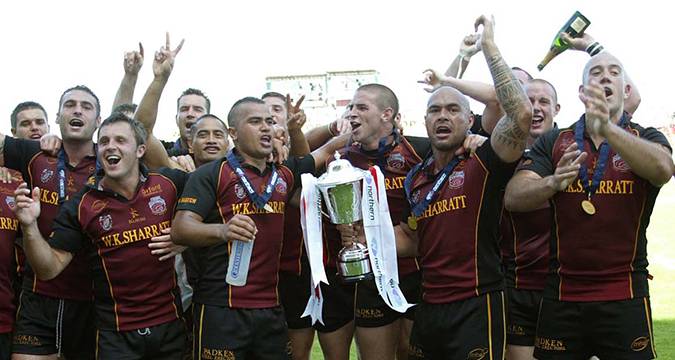 Rugby League has never been short of innovative ideas on how to fashion a knockout competition for clubs outside the top-flight, but sticking with one format for any length of time has proven more of a challenge.
NEVER mind Planes, Trains and Automobiles, the hit film starring Steve Martin and John Candy. As we look forward to the fifth running of
Rugby League has never been short of innovative ideas on how to fashion a knockout competition for clubs outside the top-flight, but sticking with one format for any length of time has proven more of a challenge.
NEVER mind Planes, Trains and Automobiles, the hit film starring Steve Martin and John Candy. As we look forward to the fifth running of Time Machine: The many weird and wonderful lower-league Rugby League cup competitions in history
 Rugby League has never been short of innovative ideas on how to fashion a knockout competition for clubs outside the top-flight, but sticking with one format for any length of time has proven more of a challenge.
NEVER mind Planes, Trains and Automobiles, the hit film starring Steve Martin and John Candy. As we look forward to the fifth running of
Rugby League has never been short of innovative ideas on how to fashion a knockout competition for clubs outside the top-flight, but sticking with one format for any length of time has proven more of a challenge.
NEVER mind Planes, Trains and Automobiles, the hit film starring Steve Martin and John Candy. As we look forward to the fifth running of 